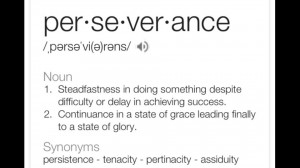From TED Blog:
Before Twitter, before Facebook, before Gmail and AIM, there were ink and paper. There were people who dedicated time to writing correspondences, and then waited for a reply. After the jump, excerpts from five of the most delightful, beautiful or simply intimate letters we’ve come across.
* In 2009, after Barack Obama was elected for the first time, Bill Adler published a book of kids’ letters to their president. So much of the writing in this book is moving (or hilarious); one example comes from Kiana, a 12-year-old from Anderson, South Carolina.
As a Black female, I’m going to try to be the first woman president, and the first Black woman president at that—that is, if no one beats me to it.
* In an 1897 editorial in New York’s Sun, journalist Francis Pharcellus Church (anonymously) replied to a concerned eight-year-old, who had written to ask whether Santa Claus exists. This letter has rightly become famous—and inescapable during the holidays, when it’s printed and posted every year.
Yes, VIRGINIA, there is a Santa Claus. He exists as certainly as love and generosity and devotion exist, and you know that they abound and give to your life its highest beauty and joy. Alas! How dreary would be the world if there were no Santa Claus. It would be as dreary as if there were no VIRGINIAS. There would be no childlike faith then, no poetry, no romance to make tolerable this existence. We should have no enjoyment, except in sense and sight. The eternal light with which childhood fills the world would be extinguished. […]The most real things in the world are those that neither children nor men can see. […]Only faith, fancy, poetry, love, romance, can push aside that curtain and view and picture the supernal beauty and glory beyond. Is it all real? Ah, VIRGINIA, in all this world there is nothing else real and abiding.
* On a book tour in 1942, the writer Vladimir Nabokov wrote letters to his wife, Vera Nabokov. In November, on a stop in St. Paul, Minnesota, he wrote:
Yesterday after the trip into the country I went, having got awfully bored, to the cinema and came back on foot—I walked for more than an hour and went to bed around eight. On the way a lightning bolt of undefined inspiration ran right through me—a passionate desire to write, and to write in Russian. And yet I can’t. I don’t think anyone who hasn’t experienced this feeling can really understand its torment, its tragedy. English in this sense is an illusion and an ersatz. In my usual condition, i.e. busy with butterflies, translations, or academic writing, I myself don’t fully register the whole grief and bitterness of my situation.
I am healthy, eating plenty, taking my vitamins, and read the newspapers more than usual now that the news is getting rosier. St. Paul is a stupefyingly boring city, only owls at the hotel[…]but my apartment is charming.
![]()

